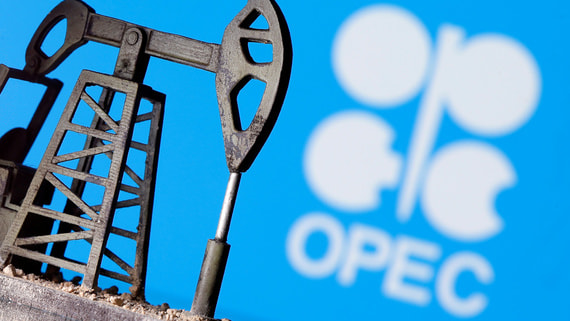OPEC+ committee recommends maintaining oil production quotas
[ad_1]

On February 1, the OPEC+ Ministerial Monitoring Committee recommended maintaining oil production quotas at the same level, OPEC said. “The Committee reviewed crude oil production data for November and December 2022 and noted the general compliance of OPEC member countries and non-OPEC countries with the declaration of cooperation,” the release said.
Earlier this week, President Vladimir Putin held a series of telephone conversations with the heads of the Middle East as part of his engagement with OPEC+. On January 30, 2022, Putin called the Crown Prince of Saudi Arabia, on January 31 – with the President of Algeria, and in December he had a telephone conversation with the President of the United Arab Emirates.
The next meeting of the OPEC+ committee is scheduled for April 3.
On October 5, 2022, the OPEC+ member countries agreed to reduce the quota for oil production in November and December by 2 million barrels per day. As a result, the alliance’s total quota amounted to 41.86 million barrels per day, which is approximately the same as in April 2022 (41.7 million barrels per day). Half of the reduction came from two countries – Russia and Saudi Arabia. Also, the participants in the deal, which was valid until the end of last year, agreed to extend it until December 31, 2023.
Earlier, the OPEC+ member countries decided to hold meetings of the monitoring committee once every two months from December 5, 2022, and ministerial meetings once every six months. Since 2021, the ministers of the countries that have acceded to the agreement have met every month.
On February 1, 2023, Deputy Prime Minister of the Russian Federation Alexander Novak called the situation with oil production and export in Russia stable, despite the sanctions of the European Union (EU) and the G7 (Great Britain, Germany, Italy, Canada, France, Japan, USA). “All the necessary measures were taken by our companies, first of all, to find new supply chains, markets, transportation of our oil,” he said (quoted by Interfax).
In 2022, after the strengthening of anti-Russian sanctions, the Russian oil industry came under pressure. The main buyers of oil and oil products from Russia – the EU, the US and the UK – imposed an embargo on their supplies, and then decided to limit fuel prices. From December 5, 2022, the price ceiling for offshore oil supplies from the Russian Federation, introduced by unfriendly countries, is in effect, and on February 5, 2023, the price ceiling for oil products will also come into force. As a result, Russian oilmen had to hastily redirect supplies from Europe to Asia. In 2022, India and China became the largest buyers of Russian oil.
Senior analyst “BCS The world of investments” Ronald Smith believes that OPEC + will change the quota for oil production only if “obvious imbalances” begin to be observed in the global oil market. “Now the situation looks relatively stable, and oil prices are acceptable to all interested parties,” he notes.
Andrey Maslov, an analyst at FG Finam, agrees with him. He explains that maintaining the current quotas is “beneficial to everyone” against the backdrop of an uncertain situation with the supply of energy resources from Russia, as well as the global crisis.
Russian oil is now still trading at a discount to the benchmark Brent, although recently it has become significantly less than the peaks of 2022. According to the Ministry of Finance, the average price of Russian Urals in January was almost $49.5/bbl. (-2% against December).
Kirill Rodionov, an expert at the Institute for the Development of Fuel and Energy Complex Technologies, links the OPEC+ decision to the recovery in oil prices over the past month and a half: on December 8, the price of Brent fell to a multi-month low of $76.8/bbl, but by January 31 it rose to $85.5/bbl. According to Rodionov, the alliance is likely to stick to current quotas as long as the recovery in oil demand supports prices. April futures for Brent traded at $84.97/bbl on February 1, according to the ICE exchange.
Smith does not expect a noticeable reaction from the oil markets, because the decision of the OPEC + monitoring committee was known in advance. Maslov also does not expect major changes in oil prices. “It is likely that Brent will continue to trade in the range of $80-90/bbl in the short term,” he predicts.
[ad_2]
Source link





